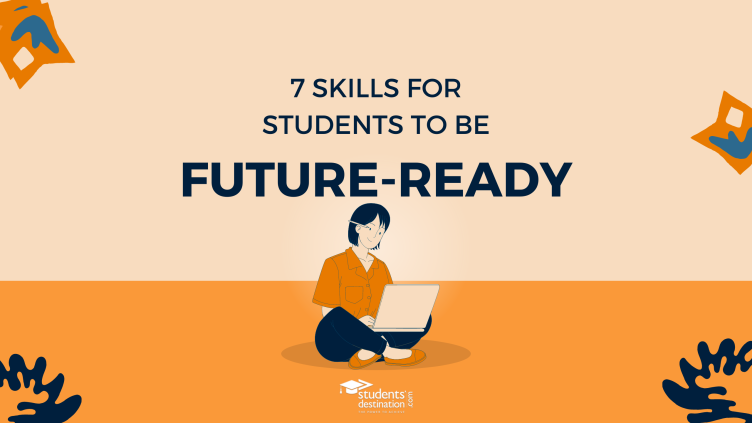Tag: planning
Beyond Borders: How to Choose the Perfect Career Option Abroad
Are you dreaming of a career that takes you around the world? Do you long to live and work in a new country, surrounded by new cultures and experiences? Choosing a career abroad can be an incredible adventure, but it can also be overwhelming. With so many options to consider, it can be difficult to know where to start. In this blog, we’ll share essential tips and tricks to help you choose a thriving career option abroad and make the most of this life-changing experience.
Research, Research, Research!
The first step in choosing a career abroad is to do your research. This involves researching the job market in the country you’re interested in, identifying in-demand industries and jobs, and exploring the cultural and social aspects of living and working abroad. Start by reading job descriptions and employment trends in your field of interest, and find out which countries offer the best opportunities for growth and development.
Consider Your Language Skills
One of the most important factors in choosing a career abroad is your language skills. If you’re interested in working in a non-English speaking country, you’ll need to have a good command of the local language. Consider taking language courses or attending language immersion programs to improve your language skills. You can also explore jobs in international companies that require bilingual or multilingual employees.
Seek Advice from Experts
Talking to people who have experience working and living abroad can provide you with invaluable insights and guidance. Reach out to alumni, career counselors, or industry experts who have experience working in the country you’re interested in. Ask for their advice and insights on job opportunities, cultural norms, and the job market in their respective countries. This will help you get a realistic view of what to expect when working abroad.
Consider Your Personal Preferences
Choosing a career abroad is not just about finding the right job, it’s also about finding the right lifestyle. Consider your personal preferences, such as the type of work environment you prefer, the type of city or town you want to live in, and the type of social and cultural activities you enjoy. These factors will help you identify the best career options that align with your personal goals and preferences.
Be Flexible and Adaptable
Working and living abroad can be a challenging and rewarding experience, but it also requires flexibility and adaptability. Be open to new experiences and challenges, and be willing to learn new skills and ways of working. You may need to adjust your expectations and adapt to new cultural norms, so be prepared to be patient and open-minded.
Choosing a career abroad can be a thrilling and transformative experience that offers a world of opportunities. By doing your research, seeking advice from experts, considering your personal preferences, and being open-minded and adaptable, you can find the right career option that aligns with your dreams and aspirations.
Don’t be afraid to take the leap and explore the possibilities of a career abroad. With hard work, dedication, and a sense of adventure, you can make your dreams of working and living abroad a reality.
So, what are you waiting for?
Start exploring your options today!
The Future-Ready Student: 7 Soft Skills for Success
Soft skills are often overlooked but are essential for students to be future-ready and succeed in their careers. These skills are not taught in textbooks but are developed through real-life experiences and interactions. In this blog post, we will discuss seven important soft skills that students should develop to be future-ready.
Communication
Effective communication is the key to success in any career. Students should learn how to communicate effectively with others, both verbally and in writing. Good communication skills help in building relationships, teamwork, and resolving conflicts.
Collaboration
Collaboration is another essential soft skill for students to develop. Students should learn how to work effectively with others towards a common goal. Collaborating with others fosters creativity and innovation, and helps students to learn from one another.
Critical thinking
Critical thinking involves analyzing and evaluating information to make informed decisions. Students should learn how to identify problems, evaluate different solutions, and choose the best course of action. This skill helps students to become better problem-solvers and decision-makers.
Problem-solving
Problem-solving is a valuable skill that helps students to identify and solve problems creatively and effectively. Students should learn how to think outside the box, explore different solutions, and implement the best one.
Adaptability
Adaptability is an essential skill in today’s rapidly changing work environment. Students should learn how to adjust to changing circumstances, learn new skills quickly, and remain productive in the face of uncertainty.
Time management
Time management is crucial for meeting deadlines and achieving goals. Students should learn how to prioritize tasks, manage their time effectively, and avoid procrastination.
Emotional intelligence
Emotional intelligence involves understanding and managing one’s own emotions and the emotions of others. Students should learn how to develop empathy, build strong relationships, and work effectively in a team.
In conclusion, developing these seven soft skills is crucial for students to be future-ready and succeed in their personal and professional lives. By focusing on these skills, students can become better communicators, collaborators, critical thinkers, problem-solvers, and team players.



